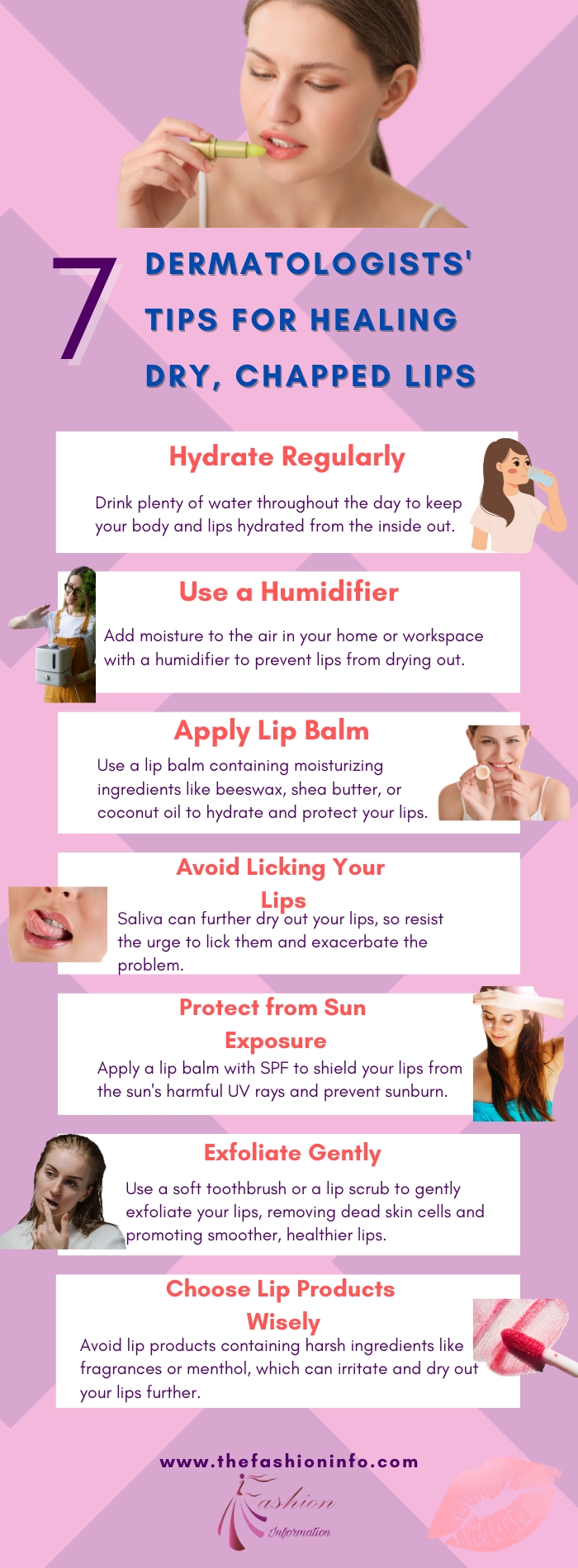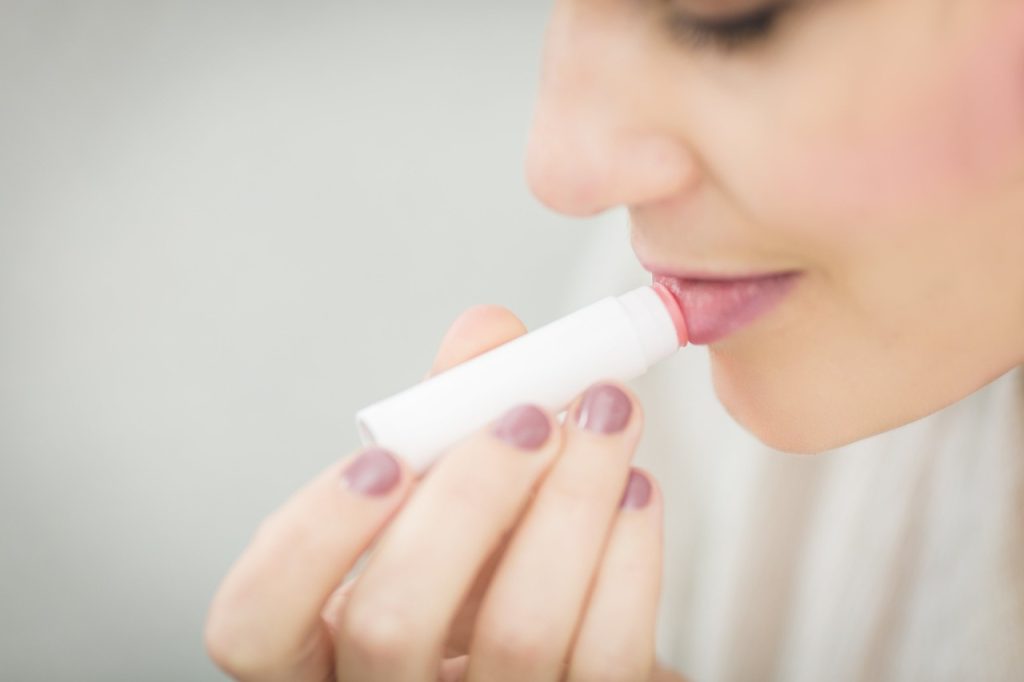Table of Contents
Introduction:
Nobody ever likes chapped, dry lips! So this winter, go an extra mile to pamper your chapped lips with these easy-peasy home remedies.
The winter season is associated with cold and dryness. Like the rest of the parts, lips are also an integral part of our body and at times we end up neglecting it. The frosty weather and cold winds tend to make them dry, chappy and even the skin may peel out. So, one should take care of lips with utmost seriousness!
HOW TO PREVENT AND TREAT DRY, CHAPPED LIPS
Cold, dry weather, sun damage, and frequently licking your lips are just some of the reasons your lips might feel dry and chapped. To prevent and treat dry, chapped lips at home, follow these tips from board-certified dermatologists.
While it may seem that dry, cracked lips are something you must live with until spring comes, you can have soft, supple lips year-round. Here’s what dermatologists recommend.
- Use non-irritating lip balm, lipstick, and other products that you apply to your lips. Many people mistake discomfort, such as burning, stinging, or tingling, as a sign that the active ingredients in a product are working. That’s not what’s happening. You’re actually irritating your lips, so you want to stop using any product that irritates your lips.
Also Read: 9 Exercises To Defeat Cellulite On Your Thighs & Butt
Ingredients to avoid while your lips are chapped: To help chapped lips heal, stop applying lip products that contain any of the following:
- Camphor
- Eucalyptus
- Flavoring: Cinnamon, citrus, mint, and peppermint flavors can be especially irritating to dry, chapped lips
- Fragrance
- Lanolin
- Menthol
- Octinoxate or oxybenzone
- Phenol (or phenyl)
- Propyl gallate
- Salicylic acid
Ingredients that can help heal chapped lips: While some ingredients can irritate dry, cracked lips, others can help them heal. When looking for products to use on your chapped lips, dermatologists recommend ones that contain one or more of the following:
- Castor seed oil
- Ceramides
- Dimethicone
- Hemp seed oil
- Mineral oil
- Petrolatum
- Shea butter
- Sun-protective ingredients, such as titanium oxide or zinc oxide
- White petroleum jelly
It also helps to use products that are fragrance free and hypoallergenic.
If your lips burn, sting, or feel uncomfortable when you apply a product to your lips, it means you’re irritating your lips, so you want to stop using that product.
- Apply a non-irritating lip balm (or lip moisturizer) several times a day and before bed. If your lips are very dry and cracked, try a thick ointment, such as white petroleum jelly. Ointment seals in water longer than waxes or oils.
- Slather on a non-irritating lip balm with SPF 30 or higher before going outdoors. Even in the winter, it’s important to protect your lips from the sun. The sun can burn dry, chapped lips more easily, which could trigger cold soreo protect dry, chapped lips from the sun, use lip balm that contains offers SPF 30 or higher and one (or both) of these sun-protective ingredients:
- Titanium oxide
- Zinc oxide
Also Read: Amazing tips to straight your nose
While outdoors, apply the lip balm every 2 hours.
- Drink plenty of water. Chapped lips are dry lips, so you want to stay hydrated.
- Stop licking, biting, and picking at your lips. When lips feel dry, it may feel natural to wet them by licking them, but this can worsen the problem. As saliva evaporates, your lips become drier.
Picking or biting your lips also irritates them, which can prevent healing.
Lip licking can be a hard habit to break. When you catch yourself licking your lips, try applying a non-irritating lip balm instead.
- Avoid holding items made of metal with your lips. Paperclips, jewelry, and other everyday products made of metal can irritate your already sensitive lips.
- Plug in a humidifier at home. A humidifier in your bedroom can be especially helpful, especially if you breathe through your mouth at night.
By following these dermatologists’ tips for chapped lips, you should have noticeable improvement in 2 to 3 weeks. To prevent your lips from chapping again, continue applying lip balm whenever it’s dry indoors or outside.
When to see a dermatologist?
Most of the time, the above self-care can heal dry, chapped lips in 2 to 3 weeks. If it doesn’t, see a board-certified dermatologist.
Your chapped lips could be caused by something aside from dry weather. An allergic reaction, yeast infection, or something more serious can make your lips feel dry and uncomfortable. Actinic cheilitis is a precancerous condition that turns one or both lips dry and scaly. A board-certified dermatologist can diagnose the cause.
Also Read: Surya Namaskar 12 Pose and Health Benefits
Here’s a DIY treatment for lips
Like your face, your lips also need some extra care. So here are a few simple remedies that might help.
1. Lemon and almond oil
A combination of lemon and almond oil is highly effective to lighten up your lip colour. It provides hydration and moisture that makes them naturally supple and pink.
How to use: Take two tablespoons of almond oil,squeeze 2-3 drops of lemon and leave it for 5 to 10 minutes. Wash it with lukewarm water.
2. Doing it with dairy products
One of the most convenient and inexpensive methods is to use cream/malai. Applying just a little bit of cream/malai is very effective for hydration and depigmentation.
3. Healthy living and balanced diet
In addition to maintaining the correct water level within the body, it is extremely essential to have a great appetite and consume a balanced diet rich in nutrients and minerals.
Lips are the most sensitive area of your body, and so, they deserve your attention to keep them healthy. In addition to the above hacks, one must be careful with direct exposure to harmful UV rays,chemical-based tints and plucking the dried skin of your lips.
Infographic: 7 Dermatologists’ Tips for Healing Dry, Chapped Lips


